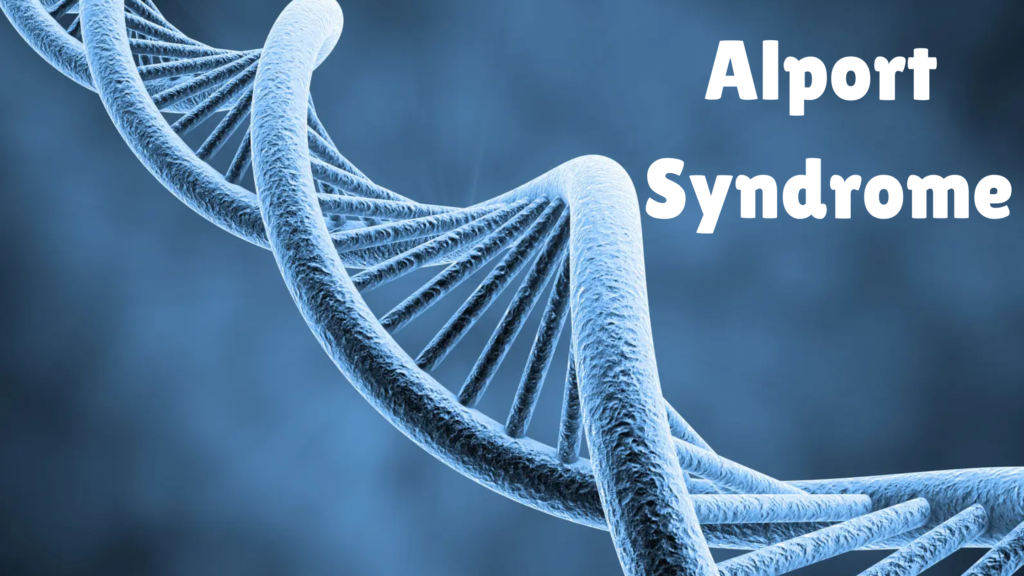Alport syndrome is a rare inherited disorder that primarily affects the kidneys, ears, and eyes. It is characterized by progressive kidney disease, hearing loss, and eye abnormalities.
🧬 Genetic Causes
Alport syndrome results from mutations in genes encoding type IV collagen, a protein essential for the structural integrity of basement membranes in various organs. The three primary genetic forms are:
- X-linked Alport syndrome (XLAS): The most common form, caused by mutations in the COL4A5 gene on the X chromosome. It predominantly affects males, who experience more severe symptoms. Females can also be affected but typically have milder manifestations.
- Autosomal recessive Alport syndrome (ARAS): Caused by mutations in both copies of either the COL4A3 or COL4A4 genes. Both males and females are equally affected, with kidney failure often occurring in early adulthood.
- Autosomal dominant Alport syndrome (ADAS): A rarer form resulting from mutations in one copy of the COL4A3 or COL4A4 genes. It tends to progress more slowly, with kidney failure potentially developing later in life.
🩺 Symptoms
- Kidneys: Persistent microscopic hematuria (blood in urine), proteinuria (protein in urine), high blood pressure, and progressive kidney dysfunction leading to end-stage renal disease (ESRD).
- Ears: Sensorineural hearing loss, often beginning in childhood or adolescence, with males typically affected earlier than females.
- Eyes: Anterior lenticonus (conical lens), retinal flecks, and corneal abnormalities, which may impair vision.
🧪 Diagnosis
Diagnosis involves a combination of clinical evaluation, family history assessment, and various tests:
- Urinalysis: Detects hematuria and proteinuria.
- Kidney biopsy: Electron microscopy can reveal characteristic changes in the glomerular basement membrane.
- Genetic testing: Identifies mutations in COL4A3, COL4A4, or COL4A5 genes.
- Audiometry: Assesses hearing function.
- Ophthalmologic examination: Evaluates for eye abnormalities.
💊 Treatment
While there is no cure for Alport syndrome, treatment focuses on managing symptoms and slowing disease progression:
- Medications: Angiotensin-converting enzyme (ACE) inhibitors or angiotensin receptor blockers (ARBs) are commonly prescribed to control blood pressure and reduce proteinuria, thereby protecting kidney function.
- Dietary modifications: Limiting salt intake and, in some cases, adjusting protein consumption to reduce kidney workload.
- Hearing aids: For those with hearing loss, devices can improve communication.
- Eye care: Surgical interventions may be necessary for eye abnormalities like cataracts or lens issues.
- Kidney replacement therapy: In advanced stages, dialysis or kidney transplantation may be required.
🧠 Prognosis
The progression of Alport syndrome varies:
- XLAS: Males often develop kidney failure by their 30s, while females may experience it later in life.
- ARAS: Both males and females typically develop kidney failure by early adulthood.
- ADAS: Progression is generally slower, and some individuals may not experience kidney failure.
